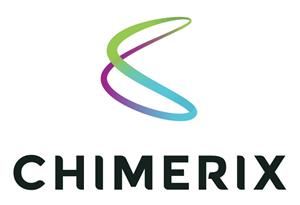
Durham’s Chimerix Gets FDA Nod to Test Cancer Drug in COVID-19 Patients

Chimerix has gotten the green light to test an investigational cancer drug to treat COVID-19 patients.
The Durham-based biopharmaceutical company announced it has received clearance from the U.S. Food and Drug Administration to proceed with a Phase 2/3 study of dociparstat sodium (DSTAT) in COVID-19 patients with acute lung injury (ALI).
Chimerix is currently in development with the drug as a first-line therapy in acute myeloid leukemia (AML).
DSTAT is a glycosaminoglycan derivative of heparin with robust anti-inflammatory properties.
Chimerix said it has the potential to address underlying causes of coagulation disorders with substantially reduced risk of bleeding complications compared to commercially available forms of heparin.
“Given the severity of the COVID-19 pandemic, we have evaluated many potential targets to address the clinical manifestations associated with severe COVID-19,” said Joseph Lasky, M.D., who is a Tulane University Medical School professor of medicine, pulmonary and critical care section chief and John W. Deming, M.D. Endowed Chair in Internal Medicine.
“Based on the literature, we believe DSTAT has the potential to reduce the excessive inflammation, immune cell infiltration and hypercoagulation associated with poor outcomes in patients with severe COVID-19 infection.”
Mike Sherman, chief executive officer of Chimerix, said the firm had planned to evaluate DSTAT in several indications of high unmet need, including ALI from different causes.
However, the pandemic intensified those efforts.
“Our team has worked closely with critical care physicians treating COVID-19 patients and with the FDA to develop a Phase 2/3 protocol to determine if DSTAT can reduce the need for mechanical ventilation and improve the rate of survival in patients with severe COVID-19 infection,” Sherman said.
Phase 2/3 study design
The study is a 1:1 randomized, double-blind, placebo-controlled, Phase 2/3 trial to determine the safety and efficacy of DSTAT in adults with severe COVID-19, who are at high risk of respiratory failure.
Eligible subjects will be those with confirmed COVID-19 who require hospitalization and supplemental oxygen therapy.
The primary endpoint: the proportion of subjects who survive and do not require mechanical ventilation through day 28.
Other endpoints include: time to improvement as assessed by the National Institute of Allergy and Infectious Disease ordinal scale; time to hospital discharge; time to resolution of fever; number of ventilator-free days; all-cause mortality, and changes in key biomarkers (e.g. interleukin-6 (IL-6); tumor necrosis factor-α(TNF-α); high mobility group box 1 (HMGB1); C-reactive protein and d-dimer.
The Phase 2 portion of the study will enroll 24 subjects to confirm the maximum safe dose and will then expand by an additional 50 patients at the selected dose.
Chimerix will conduct formal analysis of all endpoints, including supportive biomarkers, at the conclusion of the study’s Phase 2.
Contingent upon positive results, it said, the Phase 3 portion will enroll approximately 450 subjects.
